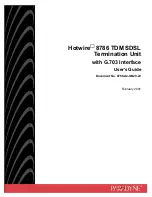
15
2.6 Power up
2.6.1 Power Line Connection
Follow the procedure below to connect the TH1941 to line power and turn on the instrument.
1. Check to make sure that the line voltage is in the range of 198V to 242V (or 110V±10%) and line
frequency is in the range of 47.5 to 52.5Hz (or 60Hz±5%) before connecting the power cord.
CAUTION: Operating the instrument on an incorrect voltage may cause damage to the
instrument, possibly voiding the warranty.
2. Before plugging in the power cord, make sure that the front panel power switch is in the off position.
3. Connect the female end of the supplied power cord to the AC receptacle on the rear panel. Connect
the other end of the power cord to a grounded AC outlet.
WARNING: The power cord supplied with the Model TH1941 contains a separate ground wire for
use with grounded outlets. When proper connections are made, instrument chassis
is connected to power line ground through the ground wire in the power cord. Failure
to use a grounded outlet may result in personal injury or death due to electric shock.
4. Turn on the instrument by pressing the front panel power switch and get ready for measuring.
2.6.2 Input Terminals
The input terminals are shown in Figure 2-5. The multimeter is protected against overloads up to the
limits as shown in table 2-1. Exceeding these limits may result in a hazard to both the multimeter and
operator.
!
CAT
Ⅰ
(
1000V
)
CAT
Ⅱ(
300V
)
Ω
COM
20A
T1AL 250V
ALL INPUT
1KV MAX
500mA
MAX
V
1000V
MAX
mA
Figure 2-5 Input terminals
Input-High terminal for Volts, ohms, HZ, period, diode and
continuity measurements
2mA~200mA range DC/AC current input terminal for
DC/AC current measurements
Common terminals
2A/10A range current input terminal for DC/AC current
measurement
2mA~ 200mA range fuse (T1AL/250V)
















































